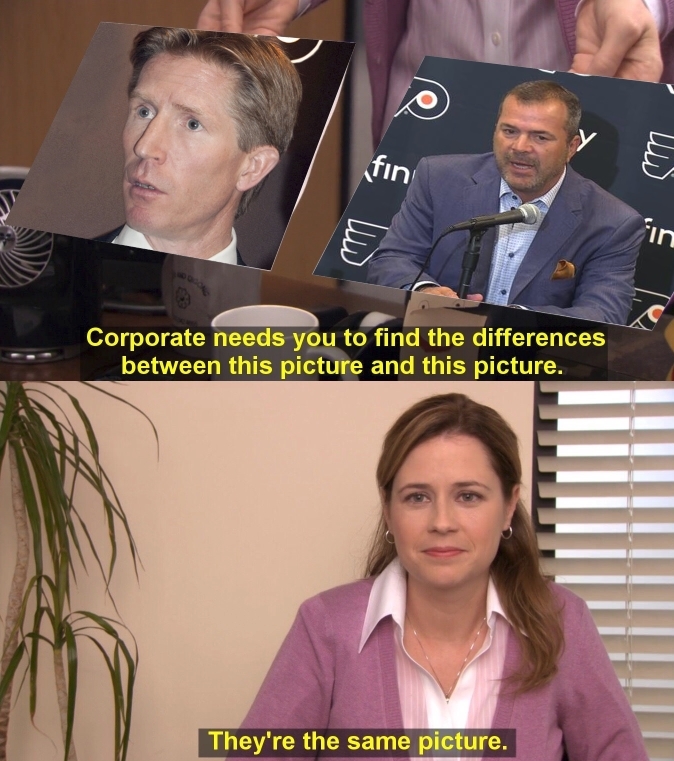1) One reason a lot of good teams marinate most of their rookies is that most young players struggle with the mental part of the game and/or aren't physically developed - whereas a player who has 4-5 years between junior/college/SHL and the AHL has time to fill out and a couple hundred games of experience. So other than a few elite players (and look at Kakko and Hughes this year), when should a player be expected to perform?
2) expected level is a factor of talent, fit and scheme. So Frost is a bad 4th line fit, but I don't think the organization expected him to win a top 6 job this season - the expectations for that role are much higher.
3) it's a retrospective judgement, if NAK hadn't emerged this year but went on to play well elsewhere, that would have been an organizational failure. Same with Friedman next year. If you draft someone in the top 100 and they fail to at least be competent role players, either your scouting and/or player development is at fault. Producing stars is tougher, taking someone with at least average NHL talent and turning them into above replacement players is development - i.e., you can't teach "it," but you can teach fundamentals.
Then you have players like Laughton, who was a defensive black hole at 21, came back better at 23, and is a solid if inconsistent player at 25 - he was developed, but did he reach the potential of a #20 pick (but that varies draft to draft, some are really deep, so are really thin).
Hagg has flatlined, but did show improvement this year, so some of that is probably on him, some of that on coaching that allowed him to chase hits instead of play a more disciplined game.
I think you need some inside information to really make this judgement, the FO isn't going to advertise that a current player parties too much or lacks work ethic until they dump him. Nor will it come out and say we choose the wrong players for our HC's system (the new GM might hint as much to the press, however). Or our scouts screwed the pooch on that pick.


